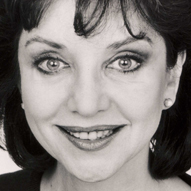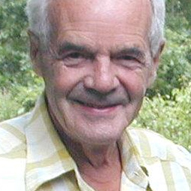Ben Tanzer: “But how does one get a piece on the show? Or even meet Ira Glass who I understand rests in a cryogenically sealed chamber between shows? I imagine one could lurk outside the studio or Ira’s home, though again please note that I am not a stalker, and that the charges to that effect filed by NPR’s legal office here in Chicago did not stick. One could also submit their work, which I have done, but how well does one’s actual work reflect their wit, timing, and ability to move the public to tears, joy, and maybe even arousal in the space of one sentence? Not well my friend, not my work anyway.” (via Pete Anderson)
Category / Radio
Amateur Hour at Studio 360
Kurt Andersen has offered the uncut version of his conversation with Harlan Ellison. But what is particularly astonishing is just how much of an ignoramus Andersen comes across as. He constantly interrupts Ellison. At around the 26:30 mark, Andersen cannot get Dreams with Sharp Teeth director Erik Nelson’s name right and must utter the intro again. An embarrassing suggestion that Ellison wrote “Paladin of the Lost Hour” for the original Twilight Zone is there. In short, Studio 360 is a program that is made almost entirely in the editing room and certainly not from the conversation itself. And if this uncut interview serves as a representative rough version of what the editors have to play with, then I wonder just how much Andersen is relying on his editors to salvage the show and make it sound “professional.”
For the record, while there is some editing on The Bat Segundo Show (mostly to boost levels, remove coughs and popped plosives, make people sound a bit sexier, and the like), what you hear on these shows is 98% of the conversation. If I make a referential mistake, I leave it in. If there’s a strange tangent, I leave it in. If a guest and I get kicked out or something strange happens because of a third party, I leave it in. But I compensate for these fallacies by actually knowing the material: reading the book in full, wading through other interviews to ensure that I don’t ask the same questions, making sure I pronounce the author’s name, the book’s title, and the book’s characters correctly (although there have been a few minor slip-ups; nobody’s perfect). I’m determined to get as much of this right in my conversation because it means less editing time for me. And I only have so much time to commit. Perhaps this “one take” sensibility comes from my theatrical background. But apparently Andersen (or his writers) cannot do this.
Just think of all the man-hours that have been expended towards correct Andersen’s mistakes. Consider the labor costs that might have been avoided had Andersen actually bothered to pay attention to his goddam subject.
But what do I know? I’m just some hapless podcaster.
(Incidentally, at the 30 minute mark, it’s also quite funny to hear Harlan Ellison skewer Andersen’s stereotypical remarks about Los Angeles.)
Coming Soon to The Bat Segundo Show
You may know Peter Fernandez and Corinne Orr from their voiceover acting for Speed Racer. In addition to writing and directing the American scripts, Fernandez was the voice of Speed Racer and Racer X. Orr was the voice of Trixie and Spritle. But what you may not realize is that both of these actors began their careers just as old time radio was on the decline. (Indeed, Orr even appeared on an episode of CBS Radio Mystery Theater, Himan Brown’s effort in the 1970s to bring back old time radio.) Since one of my side projects has involved attempting to revive old time radio for the podcasting age, I am greatly interested in this generation of great voiceover actors. I’m also a fan of Speed Racer. Fernandez and Orr — both of whom are especially friendly people — kindly took some time out to talk with me while I was bumping around The New York Anime Festival. There were many topics discussed during our conversation. (After many curious years, I finally learned the story behind the third season Star Blazers casting switchover, which will be revealed once the podcast goes up.) But as it turned out, we got to the subject of old time radio pretty quickly.
Correspondent: Was there a stigma in terms of female actors doing boys at the time?
Orr: No. Everybody did it. (laughs) Not everybody, but it was common because we were coming out of the radio era.
Correspondent: Yeah.
 Orr: And people had doubled and tripled in shows. So…
Orr: And people had doubled and tripled in shows. So…
Fernandez: Well, on radio though — and I grew up partly doing the radio shows from the East Coast, which was where most of the dramatic shows came from. And they used real kids. There was one boy named Ronald Liss, who started doing radio when he was a year and a half. He could read.
Orr: Really?
Correspondent: Wow.
Fernandez: Yeah. Quite a bit. He went to the same school I did and they skipped him three grades.
Orr: I knew him. I loved him.
Correspondent: I’ve listened to a lot of old time radio and I actually have heard children. So that’s definitely true.
Fernandez: Yes.
Correspondent: Actually, this brings up a question I wanted to ask both of you, in terms of animation and anime reflecting this old time radio feel. Rather, there’s a whole generation that grew up who didn’t listen to old time radio. I only discovered it just by complete curiosity. And I’m wondering if you feel, both as actors, that there has been something lost in the last forty years.
Fernandez: I want to address that. My favorite medium of all time is radio, and it always will be. You’ve heard the cliche “theater of the mind.” And it’s absolutely true. Every listener had a different picture of what he was listening to in his head. And it was a marvelous medium. And great for actors. It was live!
Orr: We do a convention each year called Friends of Old Time Radio in New Jersey. And it’s glorious. They recreate all the old shows with some of the original actors who are still alive, and they use other people to do the shows. And it’s great fun! We do it each year. And I just won an award last year.
Correspondent: Oh! Congratulations.
Orr: Thank you.
Correspondent: Well, we’re talking about radio as “It was a fabulous medium.” Do you think there’s absolutely no hope — particularly in this podcasting era; I mean, here we are talking on a podcast — of old time radio returning?
Fernandez: I don’t think it can ever return. Because now it’s a commercial every three minutes on whatever you’re watching or listening to. Three or four minutes. However, I was thinking of maybe devising three minute segments of soap operas — you know, original ones. Not going back to the old ones. And having a little brief drama or comedy. Whatever. Lasting only for the three minutes. What stations would run it, I don’t know. Because you need X amount of stations to pay for it.
 Correspondent: But what I’m suggesting is, is that here we have this podcasting medium in which this isn’t a factor. In which you can have a sponsor sponsor an entire podcast. So I’m wondering if there’s any hope of old time radio that’s lengthy thirty-minute drama.
Correspondent: But what I’m suggesting is, is that here we have this podcasting medium in which this isn’t a factor. In which you can have a sponsor sponsor an entire podcast. So I’m wondering if there’s any hope of old time radio that’s lengthy thirty-minute drama.
Fernandez: I don’t think there’s an audience for it.
Correspondent: Really.
Fernandez: Yeah, if they want to spend a half hour, they want to see it on television or whatever.
Correspondent: Even if they’re walking in the streets with their iPods? Have you considered that? I mean, people do need to listen to something on the subway.
Fernandez: Well, “listen,” there’s the key. To listen. Is it enough to just listen? Do you want to listen to a book being read or — I don’t know. I just don’t think that people are used to it mentally now.
Orson Welles: The O.G. Podcaster
A good deal of Orson Welles’ radio work is online, including his dramatizations of Les Miserables and The Pickwick Papers, which I’ve long been curious about. (via 2 Blowhards)
Marxist Adventures in Capitalism
Seattle Post-Intelligencer: “Air America Radio filed for bankruptcy reorganization Friday in the latest patch of turbulence to befall the liberal talk radio network that launched two years ago, headlined by comedian and author Al Franken.”